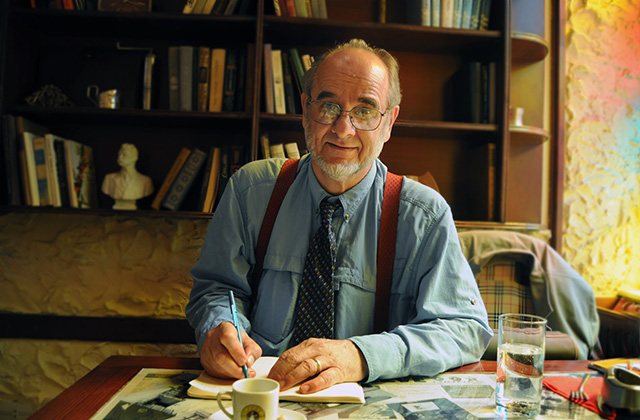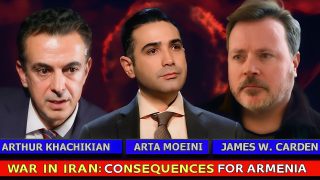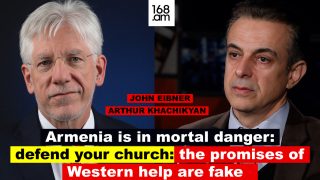War and Peace in the South Caucasus: Putin Style

Without a doubt, Russia’s leader Vladimir Putin is the greatest factor in the risk of war between Russia and Ukraine. Yet paradoxically, Putin is perhaps the best hope for peace in the South Caucasus, at least as far as Azerbaijan and Armenia are concerned. The Georgian situation is, however, another matter. But one should take one step at a time in this exceptionally dangerous and conflict-prone region,
The recent 2020 Karabakh War between Azerbaijan and Armenia was, in effect, a continuation of the bitter 1990s ethno-religious territorial war over Nagorno-Karabakh (Artsakh) that emerged between the two newly independent states in the midst of the break-up of the Soviet Union. The 1990s conflict produced thousands of casualties and hundreds of thousands of displaced civilian ethnic minority refugees. It was a humanitarian catastrophe for families on both sides of the border. Despite a Moscow-brokered ceasefire which was signed in 1994 and many efforts by the international community (particularly the Minsk group), no peace treaty was negotiated by the two South Caucasus states.
The 44 Day War in 2020 witnessed the rapid and one-sided Azerbaijani military advances, facilitated by the revolutionary technological break-through of devastatingly deadly drones. Azerbaijani troops only halted due to the threat, albeit somewhat belatedly, of a powerful Russian military intervention into the region. The deterrence stopped a potential ethnic blood bath of Karabakh Armenians. Armenian military planners in Yerevan and its depleted army were at that point unable to adequately protect their Karabakh brethren. Tens of thousands of vulnerable Karabakh civilians owed their immediate physical safety ultimately to the Russian military deterrence. Armenians in Artsakh, not to mention Armenia itself, continue to benefit enormously from the presence of a thin line of several thousand armed Russian peacekeepers. These major-power Russian troops act as a critical buffer between the continually warring smaller states of Azerbaijan and Armenia.
The November 2020 Moscow-brokered ceasefire between Armenia and Azerbaijan has been followed-up by a series of Moscow-sponsored trilateral meetings and agreements. The decades of multi-lateral and largely Western-sponsored Minsk process meetings (co-chaired by France, the United States and Russia) had previously produced for the most part negligible results. The oft-cited criticism of the Minsk process was that of endless and circuitous discussions and official statements, but not enough actual meaningful accomplishments. By contrast, Moscow’s firm decision to deploy and the speed of the implementation of the armed Russian “peacemakers” was dramatic and exceptionally effective. In addition, Moscow’s unilateral and more coercive diplomacy seems to have pressured the reluctant national leaders, Pashinyan in Yerevan and Aliyev in Baku, to inch towards preliminary de-escalation and cautious, but potentially cooperative steps forward.
The Islamic Azerbaijani and Christian Armenian divide is a vast one that has widened greatly in recent decades. Without a doubt, it is a long and extremely difficult road ahead in the quest for peace and greater economic development and cooperation in the Caucasus. However, Moscow’s military might and commercial ambitions may be sufficient to push the recalcitrant South Caucasus states to halt the deadly series of border clashes, wars and continuing dangerous arms race. The threats of an ambitious imperial autocrat can sometimes generate positive results. It is, however, definitely not guaranteed. The malevolent Stalinist legacy sowed the bitter seeds of past discord in the region. So too Putin’s Russia historically has been a major arms supplier to both sides and thus facilitated the dangerous weapons spiral that fostered war between Armenia and Azerbaijan. It is long overdue for Moscow to make amends, even if, at times, it resembles coercive diplomacy.
Alan Whitehorn is an emeritus professor of political science and writes on international relations and ethnic conflict. He has participated in several international workshops on the South Caucasus.
December 30, 2021

























